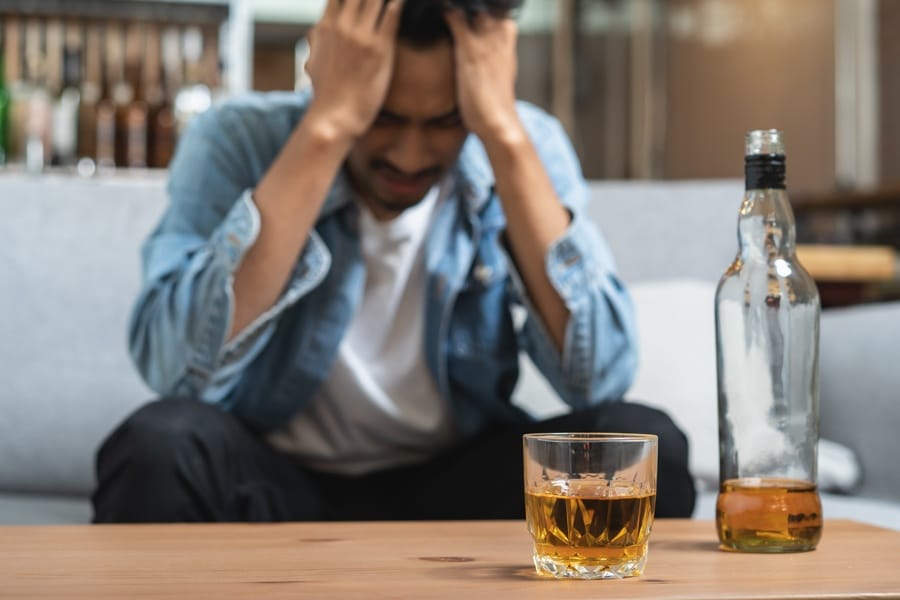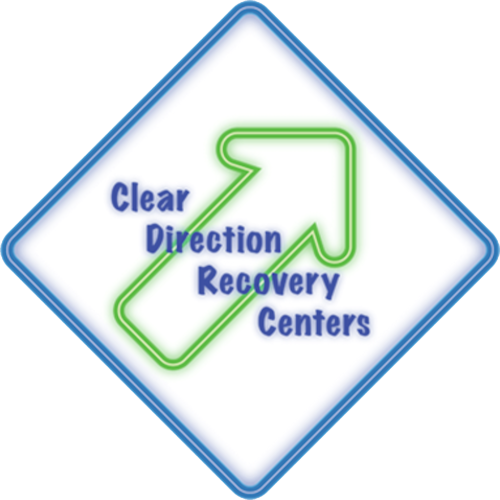Many people wonder how long alcohol stays in the body after drinking. This is a common question for those who want to understand how alcohol is processed and detected. The answer depends on how the body breaks down and removes alcohol.
Alcohol doesn’t stay in the body forever. Instead, it undergoes a process called metabolism, which converts it into other substances that the body can eliminate. At Clear Direction Recovery in New Jersey, we help people understand alcohol’s effects on the body and provide support for those struggling with alcohol use through our comprehensive treatment programs.
How is Alcohol Metabolized in the Body?

When you drink alcohol, it follows a specific path through your body. The alcohol (called ethanol) gets absorbed into your bloodstream through your stomach and small intestine. Your liver does most of the work to break down alcohol.
Blood alcohol concentration (BAC) measures how much alcohol is in your blood at any time. This number helps determine how alcohol affects you.
Your liver processes about 90-98% of the alcohol you drink. This happens in two main steps:
- First step: An enzyme called alcohol dehydrogenase (ADH) changes ethanol into acetaldehyde, a toxic substance
- Second step: Another enzyme called aldehyde dehydrogenase (ALDH) changes acetaldehyde into acetate, which your body can safely remove
Your body eliminates alcohol at a steady rate of about 0.015-0.020% BAC per hour. This means if you have a BAC of 0.08%, it takes about 4-5 hours for alcohol to leave your system completely.
Factors That Affect How Long Alcohol Stays in Your System
How long alcohol stays in your system depends on several personal factors. These factors influence how quickly or slowly your body can break down and remove alcohol.
Your body weight and muscle-to-fat ratio affect alcohol concentration. People with higher body weight and more muscle tend to have lower blood alcohol levels than smaller people or those with more body fat. This happens because alcohol spreads through body water, and muscle holds more water than fat.
Men and women process alcohol differently. Women typically have less body water and lower levels of enzymes that break down alcohol. As a result, women generally process alcohol 10-15% slower than men of the same weight. This means that how long alcohol stays in your system can be longer for women.
Your genes affect how well your body makes the enzymes ADH and ALDH. Some people, especially those of East Asian descent, have a genetic variation that slows alcohol metabolism. This can make alcohol stay in the system longer for some individuals.
How Long Will Alcohol Stay in Your System by Test Type?
Different tests can detect alcohol in your body for different amounts of time. Here’s what you can expect:
| Test Type | Detection Window | Common Use
|
| Blood | 12-24 hours | Medical, Legal |
| Urine | 12-80 hours | Workplace, Rehab |
| Breath | 12-24 hours | Law Enforcement |
| Saliva | 12-48 hours | Workplace |
| Hair | Up to 90 days | Historical Use |
Blood tests check the actual amount of alcohol in your bloodstream. These tests are very accurate and can find alcohol for about 12-24 hours after your last drink. Some advanced tests can detect alcohol use for up to 2-3 weeks.
Standard urine tests can detect alcohol for 12-48 hours. Special tests like EtG and EtS can find alcohol byproducts for up to 80 hours, sometimes up to 5 days after heavy drinking. How long alcohol stays in urine depends on the test type and how much you drank.
Breathalyzers measure alcohol in your breath and can detect it for about 12-24 hours. Police use these tests because they’re quick and fairly accurate. How long alcohol stays on your breath depends on your drinking pattern and metabolism.
Does Beer Stay in Your System Longer Than Other Drinks

Many people think beer, wine, or liquor stays in your system for different amounts of time. This isn’t true. All alcoholic drinks contain the same type of alcohol called ethanol.
What matters is how much alcohol you consume, not the type of drink. A standard drink contains the same amount of alcohol whether it’s:
- Beer: 12 ounces of 5% alcohol beer
- Wine: 5 ounces of 12% alcohol wine
- Liquor:5 ounces of 40% alcohol spirits
Your body processes one standard drink per hour, regardless of whether it’s beer, wine, or liquor. How long does beer stay in your system is the same as any other alcoholic drink with equal alcohol content.
Common Myths About Speeding up Alcohol Elimination
Your liver processes alcohol at a fixed rate, and there’s no way to speed this up. Many common beliefs about sobering up faster are myths.
Coffee might make you feel more awake, but caffeine doesn’t speed up alcohol metabolism. Mixing alcohol and caffeine can be dangerous because it masks alcohol’s effects. How long for alcohol to leave the system isn’t changed by drinking coffee.
Drinking water or taking cold showers might help you feel better, but they don’t speed up how your liver removes alcohol. While staying hydrated helps with hangover symptoms, it doesn’t change how long it takes to get alcohol out of your system.
Many supplements claim to help remove alcohol faster, but scientific studies show they don’t work. Only time allows your liver to process alcohol completely.
Understanding Alcohol’s Effects on the Body
When your body breaks down alcohol, it creates acetaldehyde, a toxic substance that causes hangover symptoms like headaches and nausea. Drinking large amounts or drinking frequently can lead to serious health problems.
Short-term effects include:
– Impaired judgment and coordination
– Slurred speech and blurred vision
– Risk of alcohol poisoning
Long-term effects include:
– Liver damage and disease
– Heart and blood vessel problems
– Brain and nervous system damage
– Mental health issues like depression and anxiety
How long it takes alcohol to leave your system varies by person, but the health risks are real regardless of detection times.
Frequently Asked Questions About Alcohol Detection in New Jersey
Alcohol can be detected on your breath for about 12-24 hours after one drink, though this varies based on your body size, metabolism, and whether you ate food before drinking.
Yes, some medications like antibiotics, antidepressants, and pain relievers can slow down alcohol metabolism, making alcohol stay in your system longer than usual.
Hangover symptoms continue because of dehydration, inflammation, and leftover acetaldehyde in your system. These effects can last even after alcohol is no longer detectable in your blood.
Finding Support for Alcohol-Related Concerns
If you’re concerned about alcohol use, professional support is available, including substance abuse treatment in New Jersey. At Clear Direction Recovery, we offer comprehensive treatment options including Partial Hospitalization Programs (PHP), Intensive Outpatient Programs (IOP), and Medication-Assisted Treatment (MAT). Our personalized approach helps individuals understand alcohol’s effects and develop healthy coping strategies. Contact Clear Direction Recovery to start your personalized treatment journey.


